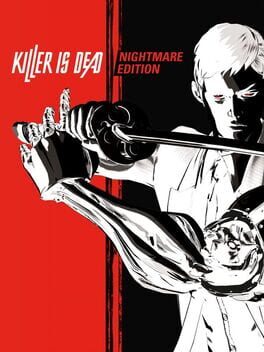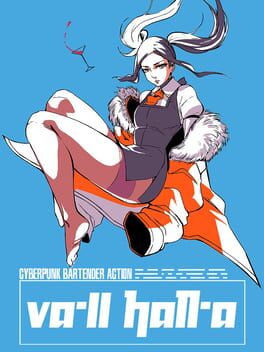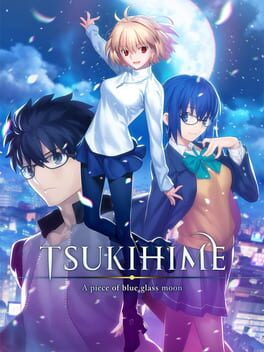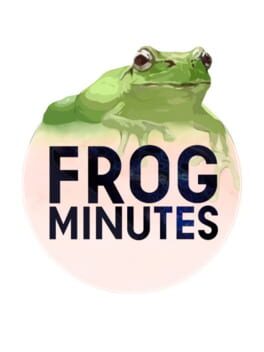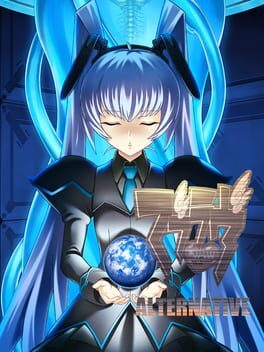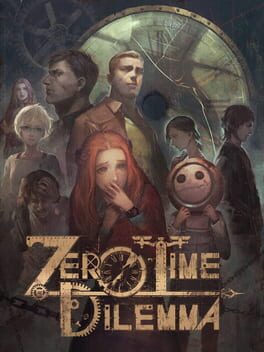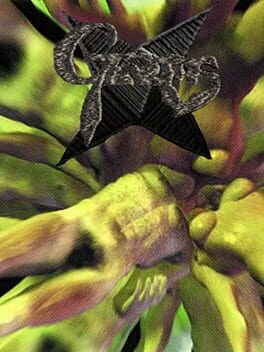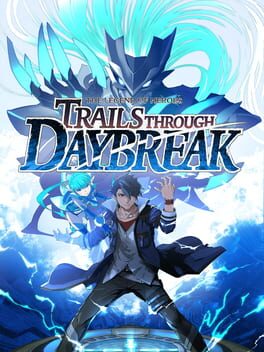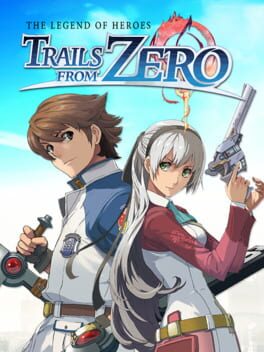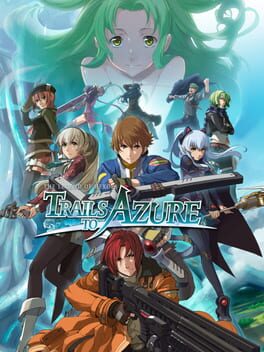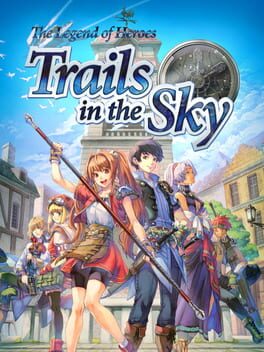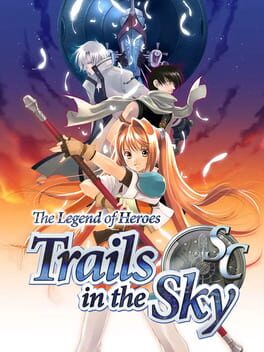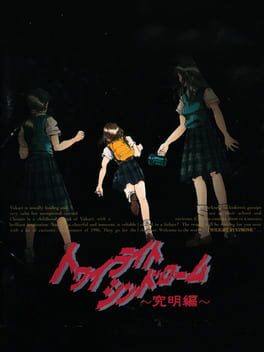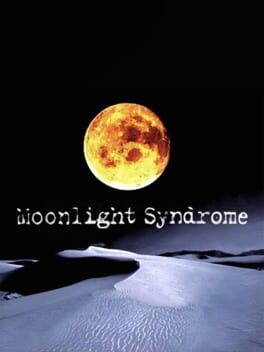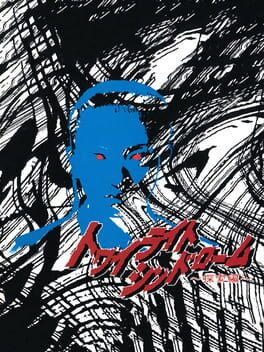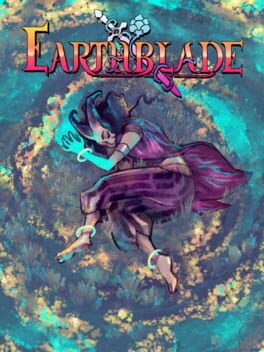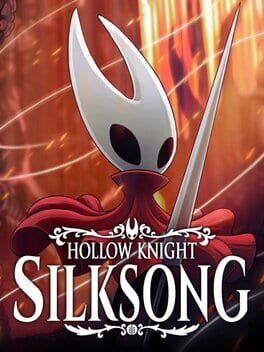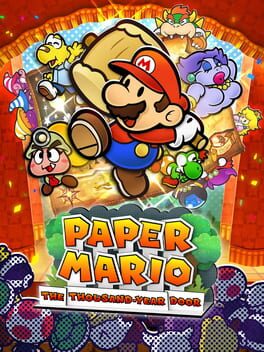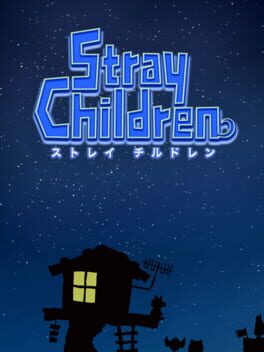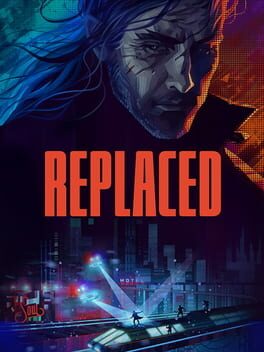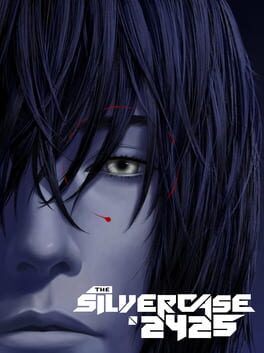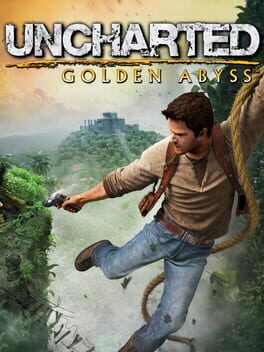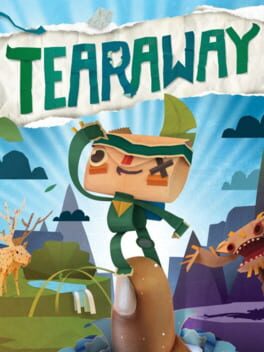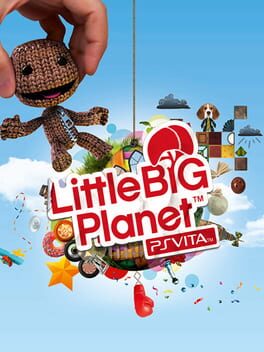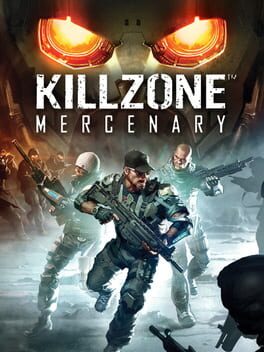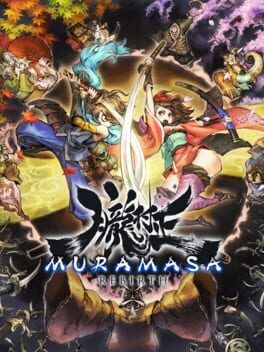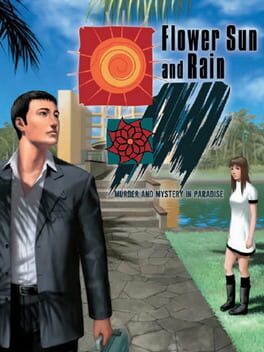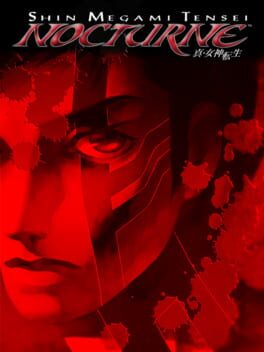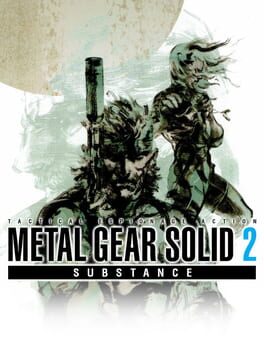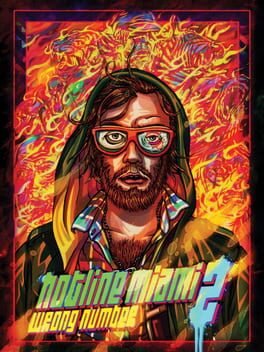PKD2
95 reviews liked by PKD2
Killer on Debt
Suda51's Killer is Dead was one of the many titles produced during the "Dark Era" of Grasshopper Manufactured as a developer since they're not publishers themselves. The 7th gen on consoles and the craze of action games, no matter the type was an age to learn the in and outs of the market. Say; your Bayonnetas, Devil May Cries, your Metal Gear Revengeances and even No More Heroes, something more close to home. Each one adding their own flair and substance beyond just connecting combos; the story, characters, dialogue, style, music and the overall presentation helps a lot of these titles stand on their own in top of being Hack and Slash games.
What doesn't suit me much with Killer is Dead is the overall package itself. The consistency in a game is key, maintaining a structure that can last is hard. Specially when we're talking about videogames. Killer is Dead greatest sin is that it can't mantain it at all, and when it does is you start to notice that something is missing. This leads me to believe that: Development time was tight and not enough, it was too ambitious and due to a lack of funding a lot of stuff had to be cut or simple inexperience led to a subpart product.
Takes some light inspiration from No More Heroes combat, combined with a simple yet fun upgrade system and killer7 signature cell-shading style and even the word "killer" slapped on the title. The combat is really fun albeit braindead easy and can get really repetitive on longer sections that require you to fight endless hordes of faceless enemies. It emphazises a "counter and strike" playstyle towards the normal enemies and being agressive towards some bosses; either dodge or parry their attacks to squeeze more juice out of the combat. When it comes to style, Killer is Dead is one hell of a looker, we don't see many games if any with the style that originated in killer7 emphasizing the crude and raw colors over the scenery, specially the blacks disguised as overly thick shadows. Killer is Dead has some of that, but it failed to secure a peaceful cohesion with all of the visual flare it has to offer. It is very close but they might have gone overboard with the motion blur and glow in general? While killer7 remained mostly calm and gave you enough time to analyze the scenery in your head without any intrusive post-processing effect while on gameplay. It is distracting in Killer is Dead if we compare it directly to killer7, it unecessarily stains an already clean image and thus ruining some of the merit it might had towards the future at least for me.
This time we the take control of "Mondo Zappa" and no it's not Sumio Mondo's lost cousin or anything just because they share that word. "Mondo" means "World" in Italian and my guess is because both characters travel around the world very often due to their jobs. Zappa works under an agency sustained by taxes, which means they work for the goverment, and their main goal is to execute whoever the client at hand is asking. Each chapter is treated as missions or levels which can be selected on a world map alongside sitting with some side-content in top of it alá No More Heroes 2. "Giggolo" as they're called are basically side-missions were we need...to enchant women with gifts? The whole ordeal is unnecessary, used as an excuse to give us new gadgets to make combat/exploration easier. It might be one of the many corporate meddling decisions that Grasshopper wered force to include because it really feels out of place and not something even a teenager would like. Lame.
Back to the story itself. It is known by most people that Suda51 makes games for a specific type of audience, they're not for everybody and that is perfectly okay. The weird and outlandish style can both attract and discourage people to try these games. Most Suda51's work tend to be chaotic on the surface, but subtle on the inside; Killer is Dead is vague and tries to tell it's whole narrative in that style. You see, killer7 worked because it has a fundation to stand on and the details of the story while vague were presented correctly as it had a lot to tell and was complex even for it's time. Killer is Dead narrative is quite simple but burried under layers and layers of vague dialogue and shiny visuals that end up confusing more than answering the questions themselves. That is why Killer is Dead fails for the most part and it is why I feel indifferent towards it.
Killer is Dead is worse that the sum of it's part. On one side it is a good and stylish action game, on the other side the music and the story are quite underwhealing and doesn't do much to shine on it's own so I barely had any reason to go forward outside just wanting to finish it. Play it if you're in the mood but don't feel forced to do so, it's 2$ on Steam on most sales.
Suda51's Killer is Dead was one of the many titles produced during the "Dark Era" of Grasshopper Manufactured as a developer since they're not publishers themselves. The 7th gen on consoles and the craze of action games, no matter the type was an age to learn the in and outs of the market. Say; your Bayonnetas, Devil May Cries, your Metal Gear Revengeances and even No More Heroes, something more close to home. Each one adding their own flair and substance beyond just connecting combos; the story, characters, dialogue, style, music and the overall presentation helps a lot of these titles stand on their own in top of being Hack and Slash games.
What doesn't suit me much with Killer is Dead is the overall package itself. The consistency in a game is key, maintaining a structure that can last is hard. Specially when we're talking about videogames. Killer is Dead greatest sin is that it can't mantain it at all, and when it does is you start to notice that something is missing. This leads me to believe that: Development time was tight and not enough, it was too ambitious and due to a lack of funding a lot of stuff had to be cut or simple inexperience led to a subpart product.
Takes some light inspiration from No More Heroes combat, combined with a simple yet fun upgrade system and killer7 signature cell-shading style and even the word "killer" slapped on the title. The combat is really fun albeit braindead easy and can get really repetitive on longer sections that require you to fight endless hordes of faceless enemies. It emphazises a "counter and strike" playstyle towards the normal enemies and being agressive towards some bosses; either dodge or parry their attacks to squeeze more juice out of the combat. When it comes to style, Killer is Dead is one hell of a looker, we don't see many games if any with the style that originated in killer7 emphasizing the crude and raw colors over the scenery, specially the blacks disguised as overly thick shadows. Killer is Dead has some of that, but it failed to secure a peaceful cohesion with all of the visual flare it has to offer. It is very close but they might have gone overboard with the motion blur and glow in general? While killer7 remained mostly calm and gave you enough time to analyze the scenery in your head without any intrusive post-processing effect while on gameplay. It is distracting in Killer is Dead if we compare it directly to killer7, it unecessarily stains an already clean image and thus ruining some of the merit it might had towards the future at least for me.
This time we the take control of "Mondo Zappa" and no it's not Sumio Mondo's lost cousin or anything just because they share that word. "Mondo" means "World" in Italian and my guess is because both characters travel around the world very often due to their jobs. Zappa works under an agency sustained by taxes, which means they work for the goverment, and their main goal is to execute whoever the client at hand is asking. Each chapter is treated as missions or levels which can be selected on a world map alongside sitting with some side-content in top of it alá No More Heroes 2. "Giggolo" as they're called are basically side-missions were we need...to enchant women with gifts? The whole ordeal is unnecessary, used as an excuse to give us new gadgets to make combat/exploration easier. It might be one of the many corporate meddling decisions that Grasshopper wered force to include because it really feels out of place and not something even a teenager would like. Lame.
Back to the story itself. It is known by most people that Suda51 makes games for a specific type of audience, they're not for everybody and that is perfectly okay. The weird and outlandish style can both attract and discourage people to try these games. Most Suda51's work tend to be chaotic on the surface, but subtle on the inside; Killer is Dead is vague and tries to tell it's whole narrative in that style. You see, killer7 worked because it has a fundation to stand on and the details of the story while vague were presented correctly as it had a lot to tell and was complex even for it's time. Killer is Dead narrative is quite simple but burried under layers and layers of vague dialogue and shiny visuals that end up confusing more than answering the questions themselves. That is why Killer is Dead fails for the most part and it is why I feel indifferent towards it.
Killer is Dead is worse that the sum of it's part. On one side it is a good and stylish action game, on the other side the music and the story are quite underwhealing and doesn't do much to shine on it's own so I barely had any reason to go forward outside just wanting to finish it. Play it if you're in the mood but don't feel forced to do so, it's 2$ on Steam on most sales.
VA-11 Hall-A is a rather simplistic game, even in terms of being a visual novel. It’s not this complex, grandiose story that takes dozens of hours to complete. While there are some additional endings you can unlock, they’re small and really only serve to expand upon the game’s primary ending. There aren’t a whole bunch of branching paths with their own long and intricate routes. While it does have some elements of romance and mystery to it, they’re very passive, and the game isn’t particularly married to either genre. Despite the science fiction nature of its cyberpunk setting, VA-11 Hall-A is rather… mundane. And as I grow older, I gradually find myself relating to its mundanity more and more as time passes.
VA-11 Hall-A is the game for twenty-somethings. It’s the perfect game to boot up after a long day at work and just relax with. It’s not extremely long, nor is it a huge commitment. It’s just a comfy visual novel/bartender simulator with fantastic pixel art and a catchy synthwave soundtrack. It has a relatable story about the struggles of finding what makes someone happy, as well as the value of community in a world where everything sucks all the time and is gradually getting worse day by day, all lessons which are primarily learned by the main character, Jill. Jill is the perfect encapsulation of someone in their mid-twenties working a dead end job who isn’t quite sure of what they want from life. She’s intelligent, witty, charming, and sarcastic in a way that’s not obnoxious. Most importantly: she’s a very caring person, and all of these personality traits serve to really enhance the conversations she has with her patrons as a bartender.
The primary focus of the narrative is just lending an ear to the patrons that come into the bar, as they share with you the unique problems that they struggle with on a day to day basis. There’s a serious incident that takes place early on in the game, and the fallout from that incident affects a few of the regulars who frequent the bar. As a result, they’ll often talk about how this event affects them or the people close to them. Jill is of course, merely a bartender, and there isn’t much that she can do to help those people. However, she still lends her ear to those who need to talk about these things, and she does her best to offer valuable input. She doesn’t always know what to say, but it still means a lot to many of her patrons that she’s willing to hear them out, and it’s a trait of hers that I find deeply admirable and relatable. The rest of the game’s characters are mostly fantastic, even if some of them aren’t necessarily the best people. Just about every character has something about them that adds to the story, whether its exposition about how the world works, a compelling subplot, or even just fun or comedic character interactions.
There is a character in this game that I feel like I should mention ahead of time because they’re a character that has caused a lot of controversy for the game. Dorothy is a sex worker android with the mind of a 24-year-old and the body of a 13-year-old. Despite the nature of her job, she’s constantly acting bright and happy-go-lucky, and she makes numerous sex jokes over the course of her appearances. She also frequently talks about her job in vivid detail. Understandably, her character really sticks out and has made several players of this game rather uncomfortable. It’s a bit hard to see her as anything but this game’s version of the stereotypical anime loli character with the mind of an adult. Her character could have been used as the springboard for a discussion about the morality of utilizing a life-like sex worker android with such a body type, but that doesn’t really happen. Her character isn’t completely about sex, as she mentions that she’s often hired just to provide comfort to people or to pretend to be their daughter in a non-sexual way. She even gets into a philosophical discussion with Jill regarding the concept of death. Still, I don’t think that the game treats her situation or her background with enough tact to really justify it. If a character like this is a dealbreaker for you, well, I totally get it, and I don’t really blame you.
There is a bit more to the gameplay aside from simply reading through the narrative. You do actually prepare the drinks that patrons order at the bar yourself. Making drinks isn’t at all complicated. After the customer orders their drink, Jill will recall what they chose and you just look the drink up in a recipe book and follow the directions. Sometimes, a patron will order a large version of a drink, but in those cases, all you have to do is double the ingredients in the recipe. It’s that simple. It's so simple, I don't even know if there are any repercussions for getting a drink wrong because it never happened to me.
Aside from that, Jill has an apartment, and before each shift, you have the opportunity to browse the internet on your phone. When you browse the net, you can visit a news site, a blog, and a message board in order to get updates on all of the happenings that are going on in Glitch City. This is a great way to learn about the larger setting despite not experiencing a lot of the things that go on within it yourself. You can also go shopping to purchase various things, such as decorations for Jill’s apartment or additional songs that you can play in the bar’s jukebox. As the day begins, Jill will sometimes desire an item from the store, and if you don’t purchase that item, Jill will be distracted and won’t be able to immediately recall a customer’s order during that night’s shift. Jill being distracted isn’t really a problem, though. As long as you’re paying attention to what people are ordering, it’s not hard to recall a customer’s order at all. However, there are mandatory things Jill needs to pay for, such as electricity and rent for her apartment, and if she doesn’t have the money to pay for those things by a certain date, you’ll get the “bad” ending to the game, so you can’t just purchase every single thing that Jill has her eye on. You’ll have to be smart with your money. It’s worth occasionally purchasing something, but not all the time.
The game does potentially date itself by implementing a lot of mid-2010s internet culture and humor, particularly by referencing common posts from 4chan and Tumblr at that time. These references aren’t frequent, nor are they especially in your face. They’re mainly made on the message board you can browse on her phone, and you can also spot some commonly posted comments flying across the screen whenever Streaming-Chan visits the bar. After nearly a decade of these types of posts going out of style, I feel like it might be a bit hard to really recognize them unless you were someone who was on the internet at the time those posts could typically be found. The game also makes several references to YIIK: A Post-Modern RPG, which was still in development at the time VA-11 Hall-A was released. I gotta tell ya, those YIIK references really hit like a truck in the wake of its… controversial release.
For the most part, VA-11 Hall-A manages to be a consistently endearing and entertaining story, despite some distractions that may or may not take you out of the cozy atmosphere it creates. For me, the struggles that Jill goes through were ones that I could really relate to, and the overall message the game conveys really struck a chord with me. My second playthrough of the game, now that I’m older, felt so much more personal than when I first played it. Finishing the game left me with a little bit of optimism, something that I’m really struggling to muster as each day passes and the world gradually resembles the worst aspects of cyberpunk settings more and more. I feel like a lot of people could really learn from Jill. The world sucks, so we should all do what we can to make it suck a little less for those around us, even if the only thing you can do is serve a drink and lend an ear to someone who needs to talk.
VA-11 Hall-A is the game for twenty-somethings. It’s the perfect game to boot up after a long day at work and just relax with. It’s not extremely long, nor is it a huge commitment. It’s just a comfy visual novel/bartender simulator with fantastic pixel art and a catchy synthwave soundtrack. It has a relatable story about the struggles of finding what makes someone happy, as well as the value of community in a world where everything sucks all the time and is gradually getting worse day by day, all lessons which are primarily learned by the main character, Jill. Jill is the perfect encapsulation of someone in their mid-twenties working a dead end job who isn’t quite sure of what they want from life. She’s intelligent, witty, charming, and sarcastic in a way that’s not obnoxious. Most importantly: she’s a very caring person, and all of these personality traits serve to really enhance the conversations she has with her patrons as a bartender.
The primary focus of the narrative is just lending an ear to the patrons that come into the bar, as they share with you the unique problems that they struggle with on a day to day basis. There’s a serious incident that takes place early on in the game, and the fallout from that incident affects a few of the regulars who frequent the bar. As a result, they’ll often talk about how this event affects them or the people close to them. Jill is of course, merely a bartender, and there isn’t much that she can do to help those people. However, she still lends her ear to those who need to talk about these things, and she does her best to offer valuable input. She doesn’t always know what to say, but it still means a lot to many of her patrons that she’s willing to hear them out, and it’s a trait of hers that I find deeply admirable and relatable. The rest of the game’s characters are mostly fantastic, even if some of them aren’t necessarily the best people. Just about every character has something about them that adds to the story, whether its exposition about how the world works, a compelling subplot, or even just fun or comedic character interactions.
There is a character in this game that I feel like I should mention ahead of time because they’re a character that has caused a lot of controversy for the game. Dorothy is a sex worker android with the mind of a 24-year-old and the body of a 13-year-old. Despite the nature of her job, she’s constantly acting bright and happy-go-lucky, and she makes numerous sex jokes over the course of her appearances. She also frequently talks about her job in vivid detail. Understandably, her character really sticks out and has made several players of this game rather uncomfortable. It’s a bit hard to see her as anything but this game’s version of the stereotypical anime loli character with the mind of an adult. Her character could have been used as the springboard for a discussion about the morality of utilizing a life-like sex worker android with such a body type, but that doesn’t really happen. Her character isn’t completely about sex, as she mentions that she’s often hired just to provide comfort to people or to pretend to be their daughter in a non-sexual way. She even gets into a philosophical discussion with Jill regarding the concept of death. Still, I don’t think that the game treats her situation or her background with enough tact to really justify it. If a character like this is a dealbreaker for you, well, I totally get it, and I don’t really blame you.
There is a bit more to the gameplay aside from simply reading through the narrative. You do actually prepare the drinks that patrons order at the bar yourself. Making drinks isn’t at all complicated. After the customer orders their drink, Jill will recall what they chose and you just look the drink up in a recipe book and follow the directions. Sometimes, a patron will order a large version of a drink, but in those cases, all you have to do is double the ingredients in the recipe. It’s that simple. It's so simple, I don't even know if there are any repercussions for getting a drink wrong because it never happened to me.
Aside from that, Jill has an apartment, and before each shift, you have the opportunity to browse the internet on your phone. When you browse the net, you can visit a news site, a blog, and a message board in order to get updates on all of the happenings that are going on in Glitch City. This is a great way to learn about the larger setting despite not experiencing a lot of the things that go on within it yourself. You can also go shopping to purchase various things, such as decorations for Jill’s apartment or additional songs that you can play in the bar’s jukebox. As the day begins, Jill will sometimes desire an item from the store, and if you don’t purchase that item, Jill will be distracted and won’t be able to immediately recall a customer’s order during that night’s shift. Jill being distracted isn’t really a problem, though. As long as you’re paying attention to what people are ordering, it’s not hard to recall a customer’s order at all. However, there are mandatory things Jill needs to pay for, such as electricity and rent for her apartment, and if she doesn’t have the money to pay for those things by a certain date, you’ll get the “bad” ending to the game, so you can’t just purchase every single thing that Jill has her eye on. You’ll have to be smart with your money. It’s worth occasionally purchasing something, but not all the time.
The game does potentially date itself by implementing a lot of mid-2010s internet culture and humor, particularly by referencing common posts from 4chan and Tumblr at that time. These references aren’t frequent, nor are they especially in your face. They’re mainly made on the message board you can browse on her phone, and you can also spot some commonly posted comments flying across the screen whenever Streaming-Chan visits the bar. After nearly a decade of these types of posts going out of style, I feel like it might be a bit hard to really recognize them unless you were someone who was on the internet at the time those posts could typically be found. The game also makes several references to YIIK: A Post-Modern RPG, which was still in development at the time VA-11 Hall-A was released. I gotta tell ya, those YIIK references really hit like a truck in the wake of its… controversial release.
For the most part, VA-11 Hall-A manages to be a consistently endearing and entertaining story, despite some distractions that may or may not take you out of the cozy atmosphere it creates. For me, the struggles that Jill goes through were ones that I could really relate to, and the overall message the game conveys really struck a chord with me. My second playthrough of the game, now that I’m older, felt so much more personal than when I first played it. Finishing the game left me with a little bit of optimism, something that I’m really struggling to muster as each day passes and the world gradually resembles the worst aspects of cyberpunk settings more and more. I feel like a lot of people could really learn from Jill. The world sucks, so we should all do what we can to make it suck a little less for those around us, even if the only thing you can do is serve a drink and lend an ear to someone who needs to talk.
An utterly staggering experience from top to bottom that is equal parts unnerving as it is comforting, erratic as it is deliberate, and heart-warming as it is emotionally devastating, Tsukihime -A piece of blue glass moon- (2021) is a retelling of TYPE-MOONs debut doujin visual novel Tsukihime (2000) that sincerely strives to retain its thematic core and identity, redefined by sweeping scenario changes, new characters and a high production value but ultimately a more experienced Kinoko Nasu through his ambition to tell the story on a grander scale. With this, Tsukihime Remake adapts the entire Near Side segment of the original that only accounts for 2/5 of the routes, which may be surprising but results in a much more dilated and refined experience, one that successfully fills its extended playtime with additional, expanded and rewritten content while also picking up where its predecessor often stumbled, removing its gratuitous adult scenes along with a more tactful handling of its sexual themes. Thoroughly entertaining due to its hyperactive narrative, exciting scenes that utilise its presentation to the fullest, and strong emotional payoffs that all left me craving more by the end.
Right out of the gate one of the most defining aspects of Tsukihime Remake is its remarkable presentation, which oozes quality as every facet of the writing is complemented by both stunning art and animation. For a medium often viewed negatively by those who believe it to be static and unengaging, the remake really pushes the envelope of what it can offer through its commitment to infusing movement into every scene, very rarely sitting still, often utilising varying camera angles between dialogue or slow panning across backgrounds, while additionally shifting through the plentiful amount of character sprites featuring multiple pose variations that greatly enhance character expression and manage to capture a sense of motion unlike most visual novels I’ve played. Perspective is another avenue in which it excels; it’s a genre staple for visual novels to have their characters all lined up together on screen, but instead Tsukihime remake fervently dedicates itself to consistently depicting character distances and positions scene by scene, mapping out their locations in every environment. All this leads to a visually engaging and dynamic experience that never feels overwhelming, as the remake has a confident grasp on how exactly to make the most of its visuals in each scene.
“It’s showtime, vampire.”
Where I think the presentation is at its pinnacle though is during the thrilling action sequences. I swear only TYPE-MOON can captivate me to the point where I’m filled with such childlike glee, twiddling my thumbs on the edge of my seat like a kid again, completely awe-struck with my blood pumping trying to anticipate what happens next as an ominous chanting choir kicks in coupled with Shiki’s hard-edge internal monologuing going off at the same time. I don't agree with the sentiment that the visuals at any point make the game feel like an "anime" as I believe that comparison is neglectful to the importance of the text, the remake manages to strike a solid balance between maintaining the writings importance while featuring fights that bombard you with special effects and animations that ebb and flow seamlessly into the next. The visuals never steal primacy away from the writing, supplementing it to the highest degree which I think is a feat in and of itself. Going further, the sound effects are sharp, the visuals are weighty and unflinching which don't shy away from the innate brutality of Tsukihime, and every action scene is crafted with such a meticulous hand to make them as unpredictable and intense as possible - simply magical.
This more action-oriented approach to an already fantastical narrative manages to remain grounded and down-to-earth in no small part due to the revamped framework it takes place in, Souya city. The dense, quaint atmosphere of Misaki is exchanged in favour of an imposing, bustling and modern Souya city as the narrative scope of Tsukihime is ramped up to go beyond just interpersonal conflicts by now seeping into society as well. Veils of both intrigue and mystery are still blanketed across the setting, an ongoing serial killer case along with talk of suspicious locations in the city churned out by the society rumour mill and yet these happenings don't even begin to shake the daily routines of anybody… life simply has to go on. These everyday moments remain so significant, and where Tsukihime covers a lot of ground with its themes on a smaller but more personal and poignant scale, often through intimate spoken interactions and clashing of worldviews between two closely-knit characters in passive settings such as the local food court or park. Comforting moments like these highlight the fleeting yet precious nature of the story’s two-week timeframe, as to many of its cast they will hold onto these memories forever, memories that are given meaning through the realisation that everything must eventually come to an end.
“Really? I like what-ifs. You might not know where you’re gonna end up, but in the moment you always feel like there's some kind of salvation out there.”
One unambiguous strength of dilating the original is the breadth of characterisation that comes with it; every single character is an infinitely more compelling agent of the story that strengthens not just their individual or interconnected arcs but also the themes of the game, while also staying largely true to their origins - with some slight alterations.
Arcueid remains an absolute joy to watch anytime her vibrant presence is on the screen, such a captivating character who brings life to every single scene she is in, aided by an outstanding performance from her voice actor who perfectly captures her essence. Her character design and behaviour now align more closely with someone of Shiki's age, resulting in a stronger blend of maturity and youth in her character coupled with added depth to her and Shiki’s relationship. Although her route remains very faithful to the original, keeping its identity and greatly enhancing its impact by drawing out scenes and dialogue, it comes at the cost of suffering identically to the original by regularly falling into repetitious heavy-exposition scenes. Shiki is not privy to the world he has unexpectedly been thrown into and the scenario doesn't lend him any agency to uncover its truths on his own, everything is told to him through the actually knowledgeable characters. This reliance on exposition leads to her route occasionally feeling very rhythmic at times, as it also sometimes retreads prior knowledge too, however despite this flaw, and believing that this is where the remake is at its lowest, Arcueid’s charm and chemistry with Shiki shines through brightly, compensating heavily for me not just during these narrative shortcomings but acting as a major strength throughout the entire route. Overall, thanks to a more evocative prose and an improvement in every other element of Arcueid’s story, I still left it with several scenes shattering my heart into pieces.
“I was taught that ‘atonement’ isn’t a destination, but a way of being that is born out of the journey itself. A heart that can punish itself without being forced to by others.”
It's not controversial to say that Ciel's original route was mediocre, failing to differentiate itself sufficiently from its Near Side counterpart and inadvertently placing Arcueid on a higher pedestal due to Ciel’s own route being written in a way that worked against her. In a miraculous turnaround, Ciel’s remake route delivers on a liberal reconstruction that taps into the latent potential its predecessor held, introducing a plethora of changes that are shaped around the retained core ideas of her route, redefining how her story is expressed while maintaining thematic coherence. The result? A complete slam dunk. Nothing short of hyperactive, her route is densely packed, juggling 4 unique plot lines simultaneously as the remake’s willingness to narrate the story from outside Shiki’s perspective really shines here, helping to layer the narrative and provide clarity for when these storylines begin to converge. As a character Ciel is both deep and multi-faceted as the narrative puts her under the magnifying glass and deeply explores every aspect of her character to such a profound level; her connection with Shiki is also the foundation upon which the games most emotional moments are built. The natural evolution of their relationship is very touching, Ciel acts as an anchor to Shiki, the support system he desperately requires, so when their dynamic unravels to the point where it's mirrored, their arcs both reach their crux, culminating in a succession of incredibly moving scenes and dialogue. Aside from just being a very well-written and compelling duo, they are both put forward as the centrepieces for the route's display of its main theme of sin and atonement.
An important distinction to make when discussing Ciel’s route is the 2 different endings it can branch into. Arcueid is given the short end of the stick, her route is not only shorter than Ciel’s but it also only has a singular possible ending compared to Ciel’s normal and true end. Having 2 endings may be concerning for returning fans, since the normal/good ends of the original were very hit or miss, often contradicting the messaging of the true ends by undoing any semblance of tragedy that befell the cast, but in the case of the remake, it separates itself from this prior misstep as the endings are worlds apart. In my opinion, Ciel’s normal ending is the crowning point of not just the remake but Tsukihime as a whole, it’s perfect and I wouldn’t even want to give an idea of what transpires in it. The true end is where things begin to derail as I can’t help but think Nasu got overly ambitious, it's so foreign from anything seen before in Tsukihime, willingly removing itself from many of the games established strengths to try and deliver on an unforgettable spectacle that ends up falling just short. I believe it serves as a solid conclusion for the entire visual novel, but evaluating it in isolation as an end to Ciel’s story, it simply overstays its welcome and lacks thematic substance to it unlike the others.
Most of the new characters are far better integrated into Ciel’s route, with a handful of them taking on major roles that serve to highlight the expanded scope of the story in tandem with its raised stakes, as characters constantly teeter on the borderline between life and death. Going into the remake with the expectation that the new is going to be the brunt of the story will likely leave you disappointed, as while the remake does succeed in adding texture to some of its new side characters, the original cast remains central. Limited character development of some of the new cast stems from the fact that this is a partial release, with certain characters barely having any semblance of characterisation; it's clear a lot is being withheld for the Far Side.
Speaking of the Far Side, the setup for it looks like it's going to be a sweep for Tsukihime -The other side of red garden- (TBD), although this was inevitable since it features the Kohaku route. The foreshadowing runs much deeper, for both old fans and new fans to pick up on, as certain details that the original Near Side clued us in on are omitted or explored differently. Bad ends are a prime example of this, used to great effect to pose interesting scenarios, but also cleverly serve as vital scenes for information that hints at what’s to come. Much of the foreshadowing for the new can be extremely subtle, with certain things I wouldn’t have picked up in a million years because of how skilfully embedded they are. Either way, the fascinating hints and intriguing theories that have emerged from the remake, in conjunction with the vast improvements of the entire Near Side, all point to very promising ideas for the Red Garden.
“No matter how much despair I feel, I’m content simply existing. This is not something that needs to be taught. Just being here like this is enough to give human existence meaning.”
For all the brutality, all the flashy fight scenes, the jokes and quips, the love and tragedy, the growth and self-discovery, Tsukihime is a deeply human story that masks itself behind these ideas, using them to convey its simple but emotive message: despite life's inherently fragile nature, and how meaningless everything might seem - just being here is enough to give existence purpose. The dialect between Arcueid and Shiki at the school, as a soothing canopy of gold paints over the vast canvas of the sky, is one of my favourite scenes in the entire visual novel, as it’s where Tsukihime lays out its philosophy through Shiki. It's here where we understand that Shiki is fundamentally an absurdist, someone who acknowledges the inherent meaninglessness of life and yet revolts against the irresolvable emptiness that often comes from such a realisation, who is able to wake up every day with a positive outlook, content at just being alive, despite his fragile existence, knowing that this is the only form of life he can live, and that if he wants something it can only be seized in this form. Just as he revolts, he lives with passion through wholly embracing the present, not chasing eternity or the divine, nor clinging onto nostalgia and the past. To say life is meaningless is from the perspective of the universe, and as such does not disqualify us from finding our own subjective meaning for certain things in life, as seen by Shiki as he still pursues experiences, fully alive to the present, taking an active role in the narrative by finding fun and purpose in the journey without focusing solely on the destination.
I find Shiki to be a very underappreciated and unique protagonist, he doesn’t go through scathing character development that turns his worldview upside down, rather he maintains a lot of his core beliefs from start to finish, for example how he frequently finds himself returning to the words of Aoko all those many years ago. He’s positioned as the catalyst for the heroines of each route to undergo their arcs, and see them through. The aforementioned conversation he and Arcueid share is beautiful in how it establishes so much about his and her character, and the music that encompasses it is equally as powerful. As someone who often finds themselves stuck in musings about their worth and existence, Shiki’s easy-going attitude and philosophy really spoke to me, however cliché some may believe it to be, but I don’t mind as there is not a stronger or more potent message than one that affirms life.
Ultimately, Tsukihime -A piece of blue glass moon- for all of its flaws was an experience that really landed with me. It’s a remake that is true to its predecessor, maintaining respect for it while understanding things change with the times and making the necessary adjustments without ever straying from its path to remain faithful, and by tapping into the underused potential of the Near Side, it brings missing life to it that also helps to separate it more from the Far Side. Everything just resonated with me so much and I haven’t been able to get Tsukihime out of my head since finishing it.
Right out of the gate one of the most defining aspects of Tsukihime Remake is its remarkable presentation, which oozes quality as every facet of the writing is complemented by both stunning art and animation. For a medium often viewed negatively by those who believe it to be static and unengaging, the remake really pushes the envelope of what it can offer through its commitment to infusing movement into every scene, very rarely sitting still, often utilising varying camera angles between dialogue or slow panning across backgrounds, while additionally shifting through the plentiful amount of character sprites featuring multiple pose variations that greatly enhance character expression and manage to capture a sense of motion unlike most visual novels I’ve played. Perspective is another avenue in which it excels; it’s a genre staple for visual novels to have their characters all lined up together on screen, but instead Tsukihime remake fervently dedicates itself to consistently depicting character distances and positions scene by scene, mapping out their locations in every environment. All this leads to a visually engaging and dynamic experience that never feels overwhelming, as the remake has a confident grasp on how exactly to make the most of its visuals in each scene.
“It’s showtime, vampire.”
Where I think the presentation is at its pinnacle though is during the thrilling action sequences. I swear only TYPE-MOON can captivate me to the point where I’m filled with such childlike glee, twiddling my thumbs on the edge of my seat like a kid again, completely awe-struck with my blood pumping trying to anticipate what happens next as an ominous chanting choir kicks in coupled with Shiki’s hard-edge internal monologuing going off at the same time. I don't agree with the sentiment that the visuals at any point make the game feel like an "anime" as I believe that comparison is neglectful to the importance of the text, the remake manages to strike a solid balance between maintaining the writings importance while featuring fights that bombard you with special effects and animations that ebb and flow seamlessly into the next. The visuals never steal primacy away from the writing, supplementing it to the highest degree which I think is a feat in and of itself. Going further, the sound effects are sharp, the visuals are weighty and unflinching which don't shy away from the innate brutality of Tsukihime, and every action scene is crafted with such a meticulous hand to make them as unpredictable and intense as possible - simply magical.
This more action-oriented approach to an already fantastical narrative manages to remain grounded and down-to-earth in no small part due to the revamped framework it takes place in, Souya city. The dense, quaint atmosphere of Misaki is exchanged in favour of an imposing, bustling and modern Souya city as the narrative scope of Tsukihime is ramped up to go beyond just interpersonal conflicts by now seeping into society as well. Veils of both intrigue and mystery are still blanketed across the setting, an ongoing serial killer case along with talk of suspicious locations in the city churned out by the society rumour mill and yet these happenings don't even begin to shake the daily routines of anybody… life simply has to go on. These everyday moments remain so significant, and where Tsukihime covers a lot of ground with its themes on a smaller but more personal and poignant scale, often through intimate spoken interactions and clashing of worldviews between two closely-knit characters in passive settings such as the local food court or park. Comforting moments like these highlight the fleeting yet precious nature of the story’s two-week timeframe, as to many of its cast they will hold onto these memories forever, memories that are given meaning through the realisation that everything must eventually come to an end.
“Really? I like what-ifs. You might not know where you’re gonna end up, but in the moment you always feel like there's some kind of salvation out there.”
One unambiguous strength of dilating the original is the breadth of characterisation that comes with it; every single character is an infinitely more compelling agent of the story that strengthens not just their individual or interconnected arcs but also the themes of the game, while also staying largely true to their origins - with some slight alterations.
Arcueid remains an absolute joy to watch anytime her vibrant presence is on the screen, such a captivating character who brings life to every single scene she is in, aided by an outstanding performance from her voice actor who perfectly captures her essence. Her character design and behaviour now align more closely with someone of Shiki's age, resulting in a stronger blend of maturity and youth in her character coupled with added depth to her and Shiki’s relationship. Although her route remains very faithful to the original, keeping its identity and greatly enhancing its impact by drawing out scenes and dialogue, it comes at the cost of suffering identically to the original by regularly falling into repetitious heavy-exposition scenes. Shiki is not privy to the world he has unexpectedly been thrown into and the scenario doesn't lend him any agency to uncover its truths on his own, everything is told to him through the actually knowledgeable characters. This reliance on exposition leads to her route occasionally feeling very rhythmic at times, as it also sometimes retreads prior knowledge too, however despite this flaw, and believing that this is where the remake is at its lowest, Arcueid’s charm and chemistry with Shiki shines through brightly, compensating heavily for me not just during these narrative shortcomings but acting as a major strength throughout the entire route. Overall, thanks to a more evocative prose and an improvement in every other element of Arcueid’s story, I still left it with several scenes shattering my heart into pieces.
“I was taught that ‘atonement’ isn’t a destination, but a way of being that is born out of the journey itself. A heart that can punish itself without being forced to by others.”
It's not controversial to say that Ciel's original route was mediocre, failing to differentiate itself sufficiently from its Near Side counterpart and inadvertently placing Arcueid on a higher pedestal due to Ciel’s own route being written in a way that worked against her. In a miraculous turnaround, Ciel’s remake route delivers on a liberal reconstruction that taps into the latent potential its predecessor held, introducing a plethora of changes that are shaped around the retained core ideas of her route, redefining how her story is expressed while maintaining thematic coherence. The result? A complete slam dunk. Nothing short of hyperactive, her route is densely packed, juggling 4 unique plot lines simultaneously as the remake’s willingness to narrate the story from outside Shiki’s perspective really shines here, helping to layer the narrative and provide clarity for when these storylines begin to converge. As a character Ciel is both deep and multi-faceted as the narrative puts her under the magnifying glass and deeply explores every aspect of her character to such a profound level; her connection with Shiki is also the foundation upon which the games most emotional moments are built. The natural evolution of their relationship is very touching, Ciel acts as an anchor to Shiki, the support system he desperately requires, so when their dynamic unravels to the point where it's mirrored, their arcs both reach their crux, culminating in a succession of incredibly moving scenes and dialogue. Aside from just being a very well-written and compelling duo, they are both put forward as the centrepieces for the route's display of its main theme of sin and atonement.
An important distinction to make when discussing Ciel’s route is the 2 different endings it can branch into. Arcueid is given the short end of the stick, her route is not only shorter than Ciel’s but it also only has a singular possible ending compared to Ciel’s normal and true end. Having 2 endings may be concerning for returning fans, since the normal/good ends of the original were very hit or miss, often contradicting the messaging of the true ends by undoing any semblance of tragedy that befell the cast, but in the case of the remake, it separates itself from this prior misstep as the endings are worlds apart. In my opinion, Ciel’s normal ending is the crowning point of not just the remake but Tsukihime as a whole, it’s perfect and I wouldn’t even want to give an idea of what transpires in it. The true end is where things begin to derail as I can’t help but think Nasu got overly ambitious, it's so foreign from anything seen before in Tsukihime, willingly removing itself from many of the games established strengths to try and deliver on an unforgettable spectacle that ends up falling just short. I believe it serves as a solid conclusion for the entire visual novel, but evaluating it in isolation as an end to Ciel’s story, it simply overstays its welcome and lacks thematic substance to it unlike the others.
Most of the new characters are far better integrated into Ciel’s route, with a handful of them taking on major roles that serve to highlight the expanded scope of the story in tandem with its raised stakes, as characters constantly teeter on the borderline between life and death. Going into the remake with the expectation that the new is going to be the brunt of the story will likely leave you disappointed, as while the remake does succeed in adding texture to some of its new side characters, the original cast remains central. Limited character development of some of the new cast stems from the fact that this is a partial release, with certain characters barely having any semblance of characterisation; it's clear a lot is being withheld for the Far Side.
Speaking of the Far Side, the setup for it looks like it's going to be a sweep for Tsukihime -The other side of red garden- (TBD), although this was inevitable since it features the Kohaku route. The foreshadowing runs much deeper, for both old fans and new fans to pick up on, as certain details that the original Near Side clued us in on are omitted or explored differently. Bad ends are a prime example of this, used to great effect to pose interesting scenarios, but also cleverly serve as vital scenes for information that hints at what’s to come. Much of the foreshadowing for the new can be extremely subtle, with certain things I wouldn’t have picked up in a million years because of how skilfully embedded they are. Either way, the fascinating hints and intriguing theories that have emerged from the remake, in conjunction with the vast improvements of the entire Near Side, all point to very promising ideas for the Red Garden.
“No matter how much despair I feel, I’m content simply existing. This is not something that needs to be taught. Just being here like this is enough to give human existence meaning.”
For all the brutality, all the flashy fight scenes, the jokes and quips, the love and tragedy, the growth and self-discovery, Tsukihime is a deeply human story that masks itself behind these ideas, using them to convey its simple but emotive message: despite life's inherently fragile nature, and how meaningless everything might seem - just being here is enough to give existence purpose. The dialect between Arcueid and Shiki at the school, as a soothing canopy of gold paints over the vast canvas of the sky, is one of my favourite scenes in the entire visual novel, as it’s where Tsukihime lays out its philosophy through Shiki. It's here where we understand that Shiki is fundamentally an absurdist, someone who acknowledges the inherent meaninglessness of life and yet revolts against the irresolvable emptiness that often comes from such a realisation, who is able to wake up every day with a positive outlook, content at just being alive, despite his fragile existence, knowing that this is the only form of life he can live, and that if he wants something it can only be seized in this form. Just as he revolts, he lives with passion through wholly embracing the present, not chasing eternity or the divine, nor clinging onto nostalgia and the past. To say life is meaningless is from the perspective of the universe, and as such does not disqualify us from finding our own subjective meaning for certain things in life, as seen by Shiki as he still pursues experiences, fully alive to the present, taking an active role in the narrative by finding fun and purpose in the journey without focusing solely on the destination.
I find Shiki to be a very underappreciated and unique protagonist, he doesn’t go through scathing character development that turns his worldview upside down, rather he maintains a lot of his core beliefs from start to finish, for example how he frequently finds himself returning to the words of Aoko all those many years ago. He’s positioned as the catalyst for the heroines of each route to undergo their arcs, and see them through. The aforementioned conversation he and Arcueid share is beautiful in how it establishes so much about his and her character, and the music that encompasses it is equally as powerful. As someone who often finds themselves stuck in musings about their worth and existence, Shiki’s easy-going attitude and philosophy really spoke to me, however cliché some may believe it to be, but I don’t mind as there is not a stronger or more potent message than one that affirms life.
Ultimately, Tsukihime -A piece of blue glass moon- for all of its flaws was an experience that really landed with me. It’s a remake that is true to its predecessor, maintaining respect for it while understanding things change with the times and making the necessary adjustments without ever straying from its path to remain faithful, and by tapping into the underused potential of the Near Side, it brings missing life to it that also helps to separate it more from the Far Side. Everything just resonated with me so much and I haven’t been able to get Tsukihime out of my head since finishing it.
Frog Minutes
2011
Muv-Luv Alternative
2006
(This review contains no spoilers for Muv-Luv and Muv-Luv Alternative. For any links to videos that I have, I will send the spoiler-free versions with just songs or OST with no story-related thumbnails)
Muv-Luv Alternative is my favourite story of all time.
In the autumn of 2021, I was looking for visual novels to read since I'd taken a break from the medium. Then, I remembered that there was this one acclaimed visual novel trilogy called Muv-Luv that I knew nothing about, other than that it somehow goes from a cutesy romcom to having mechs. The Muv-Luv trilogy consists of Extra (a slice-of-life romcom), Unlimited (a-coming-of-age story) and Alternative (a real robot mecha war story). I decided that, since this is one of the most loved VNs, I would have a blind playthrough, and so I got the trilogy. At the time, I had only read Doki Doki Literature Club, ChäoS;Child (my pre-MLA favourite), Fate/stay night and Tsukihime. At the time of writing this review, I have read just over 70 VNs (an obsession with the medium of which was fueled in no small part by ML), and while I have great respect for all of those to this day, this is the one that changed my life. I've learned many things from it, and even gained a desire to learn Japanese to a level that would make me appreciate this even more through a reread.
Right off the bat, I thought Extra was pretty enjoyable — I liked the art style, cute chibis, characters, humour and Initial D references. There's a character whose name and personality are blatantly based on Rei Ayanami, some of the girls have hair based on Gundam helmets, all of them have gigantic hair vents and/or ahoges (otherwise known as hair antennae) that were above average in size even in the 2000s. Still, even though I really clicked with the characters and cute humour, but I couldn't see where this was going, especially considering the acclaim of the series. Nonetheless, I kept going due to liking the cast and being intrigued by how this ever becomes a serious mecha story. And to be honest, I think the hate for Extra is overblown — sure, the structure equals slow pacing, Takeru is mean and sometimes borderline obnoxious in Extra, the jokes are repeated a lot, and the routes vary highly in quality, but it was a comedic take on what âge and other visual novel companies often released at the time, and it allows for greater contrast to how the mecha aspect works. Plus, if you enjoy it for what it is, it's quite fun. However, even though I knew the trilogy was a slow burn, I was left wondering if it truly would get better than just "pretty good". So Unlimited rolls around with its genre shift that I did not expect to be executed in the way it was, with massive contrast to Extra while still keeping that familiar Muv-Luv vibe, as well as intriguing worldbuilding that was merely a demo before MLA, and I was beginning to understand that this was something special. Once I got to Alternative, I was thrilled by the way the "main" story finally began. I was so hooked that I read the entire trilogy in less than two weeks.
Starting with the visuals, this part of the series is marvellous. For something that was made in 2003 and 2006, it is insane that there is so much motion, such as with eyes blinking, lipsync, many sprites (they sometimes face you with their back, which was a small detail that blew my mind at the time), backgrounds and CGs, and creative use of all of those to create a dynamic experience. Also there is a small detail I like where the text is basically subtitles with different colours depending on who's speaking. And this is just in Extra and Unlimited. In Alternative, TSFs (Muv-Luv mechs) move in fights, too. It is extremely immersive to sit in the cockpit with ambient background noise and have the UI (that changes with time!) appear on your screen, as the POV camera shifts across the screen, while seeing the TSF move from the inside, but also in other moments seeing multiple TSFs flying around, shooting bullets, swinging a sword or knife, etc. The fights have movement, and sometimes even straight up animation. Coming from Type-Moon, DDLC and Chaos;Child, the latter two of which are more recent than ML and MLA, I wasn't aware that Muv-Luv was this visually impressive to this day (big thanks to how much budget went into this, some of which was out of the author's, Kouki's, own pocket), so I was absolutely shocked by the fact that it was borderline an anime with how vibrant everything was.
Speaking of TSFs, I did enjoy Gurren Lagann and Evangelion, but I wasn't exactly into them for the mecha aspect. I did not like superpowered robots or space fights. I wanted mechs that behave more like machines, but are also not especially powerful so that fights will be tense. I tried ML/MLA in the first place because of its high acclaim and intriguing transition from Extra to mecha, not for the mecha aspect itself. I did not consider myself to be a mecha fan. But then, I realised that I just had not found my niche, and that niche was something Muv-Luv hard sci-fi has. Everything mecha, strategy, technologically, in-universe historically, geopolitically or worldbuilding related is explained and consistent in a "grounded" way, so to speak. They even made a 400-page textbook called the CODEX which is based primarily on lore featured in the source material, and even that is considered a bit outdated by now as more material came out. TSFs are agile yet fragile machines, and are treated as just another weapon. They are not superior in every aspect to tanks and planes, they have a reason (besides being cool) to exist. They are not able to do space flight, and they do not have beam or laser weapons such as laser guns or beam swords. They have bullets and large metal swords for the most part. They also have various mech-related features that I wish more mecha featured, such as neck braces for the pilot's safety due to sudden movements, various magnetic points on the fortified suit that attach to the seat and a pattern-recognition algorithm that calibrates how the machine behaves for greater efficiency as the pilot uses it more. We are also given history on various TSFs and how the various generations of them progressed and their limits. There is also the fact that TSFs are based on real life jets — the F-22 Raptor is a fighter jet in real life, but in Muv-Luv it's a TSF. Various TSFs also have different strategies and features when using them, such as how the Raptor has stealth capabilities, as well as different designs, inspired by quite a few other mecha, such as Gunbuster, Gundam and Evangelion. The politics in this are very layered, too, with many parties having complex, yet understandable, goals, while being portrayed in a humane manner.
In addition to hard sci-fi, the strategy and tactics featured in this go an extra mile in terms of details and immersion. One thing that personally bugged me (not that there's anything wrong with it) in a lot of mecha was that they use cool-sounding terms and words that are barely (and sometimes never) explained, like the "omega actuator" or something. When tech is being described to you in Muv-Luv, you are told exactly what each term means and how it contributes to the overall picture working. When you are told there will be a military op in Muv-Luv, you are given an explanation on what each plan and phase is, what the backup plan is, what to do depending on the situation, parameters such as distance and weight of objects, the advantages and disadvantages of the situation, what each squad member's placement in the plan is, what the deadline is, etc. If they suddenly need to change to plan B, you know exactly what that entails. You know what the Arrowhead 2 TSF formation is, so if in a fight someone says "All units, switch to Arrowhead 2," you know what they're referring to. You know when to switch to what weapon. You know what that omega actuator would be here. All of this is accompanied with various technical and strategic diagrams, to boot. There is so much depth that they go into with a plethora of things, that one would need a separate post just to discuss all the major topics. And when a very large-scale fight starts, you end up keeping track of so many variables and players, but it feels natural, and so mesmerising.
The soundtrack in this is wonderful. You are greeted by two opening themes in MLA, one being the PS3 theme, 0-GRAVITY, which is insanely exciting, especially after after the cute opening theme of Extra and the Unlimited OP which fills one with wonder; and the other being the original opening by the legendary band JAM PROJECT, who have been involved in many mecha and other anime projects. The song's name is Asu e no Houkou, or Roar to the Future. I think to this day, this is my favourite Japanese song of all time, let alone opening to anything, ever. It is so, so cool, hype, whatever you want to call it. It makes one remember the days of Extra and find it unbelievable that this is part of the same story as it. The non-vocal soundtrack is great in this too, when there are tracks like the briefing track which really set the tone for the mecha war story aspect of the trilogy. There are also more relaxing tracks for day-to-day life. There are so many tracks in this that just ooze passion and variety. This, similarly to the animated scene and voice acting aspect, is in part due to having some very known and talented people working as composers, such as Iwasaki Taku, who also worked on the Gurren Lagann's, Katanagatari's, Soul Eater's and other soundtracks.
Of course, the most important aspect is the story. Takeru starts as an immature teen and develops as he gains an adult's perspective on life. This is possible largely due to the genre shift of having that same romcom protagonist in Extra experience the different sides of what life is like. The change from having his biggest concern be who he wants to eat lunch with to what one might call having "real problems", with both him and the reader now remembering those relaxing times as something to be appreciated, leaves a lasting impression, and is only possible due to having lived through Extra. As this is a spoiler-free review, I will leave the plot discussion at that, and now just mention the impact it had on me. I hadn't cried from a story for years at that point, and yet Muv-Luv Alternative had me crying so hard that I had to stop reading lines for a few moments just so that the tears would clear and that I would see the screen better, six times. It was an absolutely incredible experience, and nothing has come close since for me. There were a few aspects of the story that were personally relatable to me that had an impact as well. I am so glad I went into this unspoiled.
That's not to say it's perfect, of course, there are issues such as some jokes that would be in bad taste now, 17 to 20 years later, the road to it truly becoming great (after being decent in Extra and pretty good in Unlimited) in Alternative is very much a "it gets good bro, trust me" deal where the beginning is in no way indicative of what comes later, but man, the intrigue, the characters and investment got me there without any issues. The structure definitely makes it a slow burn, and there's some weird stuff at times. But you know how in a lot of media, you have a peaceful town life for a bit in the first episode before the real story begins? Well here, you live the peace, and you live the war, making the impact very great for many people such as myself, and for others it might not be worth the build-up, which is fine. The infodumping and lore might be too much for some, but for people such as myself who get into it, it is a treat. This isn't a work for everyone, and that's fine. However, I would recommend many people, including mecha fans, visual novel readers and Attack on Titan fans, to check this out, since it really is worth trying.
Finally, I want to give thanks. I was sitting there bawling my eyes out as the credits rolled, and I want to write down the words of gratitude that I had not written anywhere before.
Thank you, Shirogane Takeru, for your inspiring journey. Thank you, Kagami Sumika, Mitsurugi Meiya, Ayamine Kei, Tamase Miki, Sakaki Chizuru and Yashiro Kasumi, for your stories that showed both the protagonist and reader the many perspectives and lives that exist in the world. Thank you, Kouzuki Yuuko, Jinguuji Marimo and other cast members, for being reliable mentors and saying things that both Takeru and I, a university student at the time who had been lost with as to what to do with life, needed to hear. Thank you for making this story such a joy to read.
Lastly, and most importantly, thank you, âge and Yoshimune Kouki, for creating this beautiful tale of love and courage that I hold dear in my heart to this day.
Muv-Luv Alternative is my favourite story of all time.
In the autumn of 2021, I was looking for visual novels to read since I'd taken a break from the medium. Then, I remembered that there was this one acclaimed visual novel trilogy called Muv-Luv that I knew nothing about, other than that it somehow goes from a cutesy romcom to having mechs. The Muv-Luv trilogy consists of Extra (a slice-of-life romcom), Unlimited (a-coming-of-age story) and Alternative (a real robot mecha war story). I decided that, since this is one of the most loved VNs, I would have a blind playthrough, and so I got the trilogy. At the time, I had only read Doki Doki Literature Club, ChäoS;Child (my pre-MLA favourite), Fate/stay night and Tsukihime. At the time of writing this review, I have read just over 70 VNs (an obsession with the medium of which was fueled in no small part by ML), and while I have great respect for all of those to this day, this is the one that changed my life. I've learned many things from it, and even gained a desire to learn Japanese to a level that would make me appreciate this even more through a reread.
Right off the bat, I thought Extra was pretty enjoyable — I liked the art style, cute chibis, characters, humour and Initial D references. There's a character whose name and personality are blatantly based on Rei Ayanami, some of the girls have hair based on Gundam helmets, all of them have gigantic hair vents and/or ahoges (otherwise known as hair antennae) that were above average in size even in the 2000s. Still, even though I really clicked with the characters and cute humour, but I couldn't see where this was going, especially considering the acclaim of the series. Nonetheless, I kept going due to liking the cast and being intrigued by how this ever becomes a serious mecha story. And to be honest, I think the hate for Extra is overblown — sure, the structure equals slow pacing, Takeru is mean and sometimes borderline obnoxious in Extra, the jokes are repeated a lot, and the routes vary highly in quality, but it was a comedic take on what âge and other visual novel companies often released at the time, and it allows for greater contrast to how the mecha aspect works. Plus, if you enjoy it for what it is, it's quite fun. However, even though I knew the trilogy was a slow burn, I was left wondering if it truly would get better than just "pretty good". So Unlimited rolls around with its genre shift that I did not expect to be executed in the way it was, with massive contrast to Extra while still keeping that familiar Muv-Luv vibe, as well as intriguing worldbuilding that was merely a demo before MLA, and I was beginning to understand that this was something special. Once I got to Alternative, I was thrilled by the way the "main" story finally began. I was so hooked that I read the entire trilogy in less than two weeks.
Starting with the visuals, this part of the series is marvellous. For something that was made in 2003 and 2006, it is insane that there is so much motion, such as with eyes blinking, lipsync, many sprites (they sometimes face you with their back, which was a small detail that blew my mind at the time), backgrounds and CGs, and creative use of all of those to create a dynamic experience. Also there is a small detail I like where the text is basically subtitles with different colours depending on who's speaking. And this is just in Extra and Unlimited. In Alternative, TSFs (Muv-Luv mechs) move in fights, too. It is extremely immersive to sit in the cockpit with ambient background noise and have the UI (that changes with time!) appear on your screen, as the POV camera shifts across the screen, while seeing the TSF move from the inside, but also in other moments seeing multiple TSFs flying around, shooting bullets, swinging a sword or knife, etc. The fights have movement, and sometimes even straight up animation. Coming from Type-Moon, DDLC and Chaos;Child, the latter two of which are more recent than ML and MLA, I wasn't aware that Muv-Luv was this visually impressive to this day (big thanks to how much budget went into this, some of which was out of the author's, Kouki's, own pocket), so I was absolutely shocked by the fact that it was borderline an anime with how vibrant everything was.
Speaking of TSFs, I did enjoy Gurren Lagann and Evangelion, but I wasn't exactly into them for the mecha aspect. I did not like superpowered robots or space fights. I wanted mechs that behave more like machines, but are also not especially powerful so that fights will be tense. I tried ML/MLA in the first place because of its high acclaim and intriguing transition from Extra to mecha, not for the mecha aspect itself. I did not consider myself to be a mecha fan. But then, I realised that I just had not found my niche, and that niche was something Muv-Luv hard sci-fi has. Everything mecha, strategy, technologically, in-universe historically, geopolitically or worldbuilding related is explained and consistent in a "grounded" way, so to speak. They even made a 400-page textbook called the CODEX which is based primarily on lore featured in the source material, and even that is considered a bit outdated by now as more material came out. TSFs are agile yet fragile machines, and are treated as just another weapon. They are not superior in every aspect to tanks and planes, they have a reason (besides being cool) to exist. They are not able to do space flight, and they do not have beam or laser weapons such as laser guns or beam swords. They have bullets and large metal swords for the most part. They also have various mech-related features that I wish more mecha featured, such as neck braces for the pilot's safety due to sudden movements, various magnetic points on the fortified suit that attach to the seat and a pattern-recognition algorithm that calibrates how the machine behaves for greater efficiency as the pilot uses it more. We are also given history on various TSFs and how the various generations of them progressed and their limits. There is also the fact that TSFs are based on real life jets — the F-22 Raptor is a fighter jet in real life, but in Muv-Luv it's a TSF. Various TSFs also have different strategies and features when using them, such as how the Raptor has stealth capabilities, as well as different designs, inspired by quite a few other mecha, such as Gunbuster, Gundam and Evangelion. The politics in this are very layered, too, with many parties having complex, yet understandable, goals, while being portrayed in a humane manner.
In addition to hard sci-fi, the strategy and tactics featured in this go an extra mile in terms of details and immersion. One thing that personally bugged me (not that there's anything wrong with it) in a lot of mecha was that they use cool-sounding terms and words that are barely (and sometimes never) explained, like the "omega actuator" or something. When tech is being described to you in Muv-Luv, you are told exactly what each term means and how it contributes to the overall picture working. When you are told there will be a military op in Muv-Luv, you are given an explanation on what each plan and phase is, what the backup plan is, what to do depending on the situation, parameters such as distance and weight of objects, the advantages and disadvantages of the situation, what each squad member's placement in the plan is, what the deadline is, etc. If they suddenly need to change to plan B, you know exactly what that entails. You know what the Arrowhead 2 TSF formation is, so if in a fight someone says "All units, switch to Arrowhead 2," you know what they're referring to. You know when to switch to what weapon. You know what that omega actuator would be here. All of this is accompanied with various technical and strategic diagrams, to boot. There is so much depth that they go into with a plethora of things, that one would need a separate post just to discuss all the major topics. And when a very large-scale fight starts, you end up keeping track of so many variables and players, but it feels natural, and so mesmerising.
The soundtrack in this is wonderful. You are greeted by two opening themes in MLA, one being the PS3 theme, 0-GRAVITY, which is insanely exciting, especially after after the cute opening theme of Extra and the Unlimited OP which fills one with wonder; and the other being the original opening by the legendary band JAM PROJECT, who have been involved in many mecha and other anime projects. The song's name is Asu e no Houkou, or Roar to the Future. I think to this day, this is my favourite Japanese song of all time, let alone opening to anything, ever. It is so, so cool, hype, whatever you want to call it. It makes one remember the days of Extra and find it unbelievable that this is part of the same story as it. The non-vocal soundtrack is great in this too, when there are tracks like the briefing track which really set the tone for the mecha war story aspect of the trilogy. There are also more relaxing tracks for day-to-day life. There are so many tracks in this that just ooze passion and variety. This, similarly to the animated scene and voice acting aspect, is in part due to having some very known and talented people working as composers, such as Iwasaki Taku, who also worked on the Gurren Lagann's, Katanagatari's, Soul Eater's and other soundtracks.
Of course, the most important aspect is the story. Takeru starts as an immature teen and develops as he gains an adult's perspective on life. This is possible largely due to the genre shift of having that same romcom protagonist in Extra experience the different sides of what life is like. The change from having his biggest concern be who he wants to eat lunch with to what one might call having "real problems", with both him and the reader now remembering those relaxing times as something to be appreciated, leaves a lasting impression, and is only possible due to having lived through Extra. As this is a spoiler-free review, I will leave the plot discussion at that, and now just mention the impact it had on me. I hadn't cried from a story for years at that point, and yet Muv-Luv Alternative had me crying so hard that I had to stop reading lines for a few moments just so that the tears would clear and that I would see the screen better, six times. It was an absolutely incredible experience, and nothing has come close since for me. There were a few aspects of the story that were personally relatable to me that had an impact as well. I am so glad I went into this unspoiled.
That's not to say it's perfect, of course, there are issues such as some jokes that would be in bad taste now, 17 to 20 years later, the road to it truly becoming great (after being decent in Extra and pretty good in Unlimited) in Alternative is very much a "it gets good bro, trust me" deal where the beginning is in no way indicative of what comes later, but man, the intrigue, the characters and investment got me there without any issues. The structure definitely makes it a slow burn, and there's some weird stuff at times. But you know how in a lot of media, you have a peaceful town life for a bit in the first episode before the real story begins? Well here, you live the peace, and you live the war, making the impact very great for many people such as myself, and for others it might not be worth the build-up, which is fine. The infodumping and lore might be too much for some, but for people such as myself who get into it, it is a treat. This isn't a work for everyone, and that's fine. However, I would recommend many people, including mecha fans, visual novel readers and Attack on Titan fans, to check this out, since it really is worth trying.
Finally, I want to give thanks. I was sitting there bawling my eyes out as the credits rolled, and I want to write down the words of gratitude that I had not written anywhere before.
Thank you, Shirogane Takeru, for your inspiring journey. Thank you, Kagami Sumika, Mitsurugi Meiya, Ayamine Kei, Tamase Miki, Sakaki Chizuru and Yashiro Kasumi, for your stories that showed both the protagonist and reader the many perspectives and lives that exist in the world. Thank you, Kouzuki Yuuko, Jinguuji Marimo and other cast members, for being reliable mentors and saying things that both Takeru and I, a university student at the time who had been lost with as to what to do with life, needed to hear. Thank you for making this story such a joy to read.
Lastly, and most importantly, thank you, âge and Yoshimune Kouki, for creating this beautiful tale of love and courage that I hold dear in my heart to this day.
I'm sorry, am I meant to be angry? Am I supposed to be mad that this game sucks ass? It is genuinely hilarious how bad every aspect of this game is. I can't help but laugh anytime I imagine someone who unironically thought Zero Time Dilemma was the best visual novel ever made back in 2012, waiting day after day that the sequel to your favorite series (which might I add only continued due to fan support) strikes lightning in a bottle twice, and when it finally does, you get this shit. How can I be mad? This is hilarious!
Zero Time Dilemma is the Shenmue 3 of Visual Novels, the Hunt Down The Freeman of mystery stories, and the fact that this was well recieved upon release only fuels my conviction that Uchikoshi is a hack with Naoki Urasawa Syndrome and can only write the same mystery story every time no matter how many stories he makes. The schadenfreude I get from shit talking this game is unparalleled, there's really no point in trying to make a coherent train of thought for ZTD but since it's so bad it warps itself into being funny, I think there are a few noteworthy thinks that make it an enjoyable experience compared to Virtue's Last Reward for me despite my score.
- The model quality is a surprising step up from VLR but jesus the animations on these are hilariously awful, Eric is always laughing no matter the occasion, the lip flaps aren't even close to matching on either language and everyone moves like puppets on a string, it makes Sonic Adventure 2's cutscenes look professional.
- What I tend to like the most about visual novels is how you can read the story at your own pace, be it a speedreader or an overanalyser, everyone can process the story at different intervals that make them comfortable with the experience. Throwing that out the window is a daringly bold move if you don't consider that they were trying to rip off telltale games's approach to gameplay with cutscene work that only rivals Yandere Simulator
- The escape rooms are pretty much the only thing that is consistent with the rest of the series to compensate for the neutered returning characters, but the flowchart is probably the worst one of out all, not only is it needlessly long, but the disordered nature of it's structure means you'll be clicking aimlessly through out of order events which feel like extremely inconsequential stepping stones until you reach that wet fart of an ending.
- It is clear that Uchikoshi wrote himself into a corner since VTL, and though I can feel pity on him, Zero escape is nowhere near the top 5 most convoluted and complex video game narratives, let alone for visual novels, so he only has himself to blame for making this jenga tower of a plot structure and failing to stick the landing.
- Multiverse theory is a load of horseshit and did irreperable damage to science fiction.
Zero Time Dilemma is the Shenmue 3 of Visual Novels, the Hunt Down The Freeman of mystery stories, and the fact that this was well recieved upon release only fuels my conviction that Uchikoshi is a hack with Naoki Urasawa Syndrome and can only write the same mystery story every time no matter how many stories he makes. The schadenfreude I get from shit talking this game is unparalleled, there's really no point in trying to make a coherent train of thought for ZTD but since it's so bad it warps itself into being funny, I think there are a few noteworthy thinks that make it an enjoyable experience compared to Virtue's Last Reward for me despite my score.
- The model quality is a surprising step up from VLR but jesus the animations on these are hilariously awful, Eric is always laughing no matter the occasion, the lip flaps aren't even close to matching on either language and everyone moves like puppets on a string, it makes Sonic Adventure 2's cutscenes look professional.
- What I tend to like the most about visual novels is how you can read the story at your own pace, be it a speedreader or an overanalyser, everyone can process the story at different intervals that make them comfortable with the experience. Throwing that out the window is a daringly bold move if you don't consider that they were trying to rip off telltale games's approach to gameplay with cutscene work that only rivals Yandere Simulator
- The escape rooms are pretty much the only thing that is consistent with the rest of the series to compensate for the neutered returning characters, but the flowchart is probably the worst one of out all, not only is it needlessly long, but the disordered nature of it's structure means you'll be clicking aimlessly through out of order events which feel like extremely inconsequential stepping stones until you reach that wet fart of an ending.
- It is clear that Uchikoshi wrote himself into a corner since VTL, and though I can feel pity on him, Zero escape is nowhere near the top 5 most convoluted and complex video game narratives, let alone for visual novels, so he only has himself to blame for making this jenga tower of a plot structure and failing to stick the landing.
- Multiverse theory is a load of horseshit and did irreperable damage to science fiction.
Game with a relatable story about going back to your hometown in adulthood and it REALLY sucks, not because anything's changed with the cute old map-shop couple living across the street, or the curry special at the local diner, but because you've had cinder blocks tied to your feet causing you to walk at a glacial pace, and your good old friend Fujita hasn't gotten into conspiracy theories or MLMs, but building space-time exporation devices he insists you to check 'the vibrations out'. He breaks you into a power plant, you meet aliens, and things get worse from there.
The game itself is mainly walking (slowly) around the surprisingly detailed and realistic-feeling town with your shitty car, the fastest bus system in the world, and trains. You can check e-mails to get a sense of who to meet or when, but sometimes these people want to meet you at nighttime and you can only pass time by walking around, or sitting on a couch (for one hour at a time: and up to two hours max.)
The minimal interactions and weirdly detailed spaces with their bespoke toilet rooms and random characters stick around in your mind afterwards. I think that's the game's strong suit - all you can really do is talk to or kill people, but that combined with your relative helplessness in combat make you even wary to walk around a hospital, since some characters will just assault you based on your in-game state.
Well, I didn't stick around for more than 3-4 hours to really see what could happen or pan out beyond a few in-game days, but it's a unique game. There IS technically a goal to do (pursuing the mystery of the game,) but it feels equally valid to just barely follow the plot and wander the huge city and enjoy the wonderfully-modeled spaces. It feels Crypt Underworld-like - the game doesn't really progress the story a lot of times outside of moments you really have to hunt for, so it kinda feels like walking in and out of bizarre, city-life vignettes.
The game itself is mainly walking (slowly) around the surprisingly detailed and realistic-feeling town with your shitty car, the fastest bus system in the world, and trains. You can check e-mails to get a sense of who to meet or when, but sometimes these people want to meet you at nighttime and you can only pass time by walking around, or sitting on a couch (for one hour at a time: and up to two hours max.)
The minimal interactions and weirdly detailed spaces with their bespoke toilet rooms and random characters stick around in your mind afterwards. I think that's the game's strong suit - all you can really do is talk to or kill people, but that combined with your relative helplessness in combat make you even wary to walk around a hospital, since some characters will just assault you based on your in-game state.
Well, I didn't stick around for more than 3-4 hours to really see what could happen or pan out beyond a few in-game days, but it's a unique game. There IS technically a goal to do (pursuing the mystery of the game,) but it feels equally valid to just barely follow the plot and wander the huge city and enjoy the wonderfully-modeled spaces. It feels Crypt Underworld-like - the game doesn't really progress the story a lot of times outside of moments you really have to hunt for, so it kinda feels like walking in and out of bizarre, city-life vignettes.
I'll be real here, if this wasn't a spoiler free review this would be five times the length but I'm not here to subject you that, in fact we can both do that once you the reader are done with this game one day! I'm here to try my level best to condense my thoughts into something coherent without ANY spoilers, without sounding like a crazy lunatic, on selling to you what is arguably my favorite story in fiction so here goes. There will be ABSOLUTELY ZERO SPOILERS in this review, I'll be making sure of that. Spoiling this game for someone or for yourself has to be a cardinal sin or something SO I HIGHLY RECOMMEND NOT LOOKING UP ANYTHING ABOUT THIS GAME UNTIL YOU BEAT IT, NOTHING ABOUT THE CHARACTERS, NOTHING ABOUT ANY OF THE TERMS YOU HEAR AND DON'T EVEN MAKE A SIMPLE SEARCH ABOUT THE CHARACTERS I'M SO SERIOUS. LOOK UP ABSOLUTELY NOTHING.
First off, what is 13 Sentinels: Aegis Rim? Well in a nutshell it’s a VN-esque game pumped full of steroids and cranked up to the max. This game features a non-linear narrative revolving around, you guessed it, 13 distinct characters. There are 2 types of gameplay options: Remembrance and Destruction. Remembrance is the real meat of this game and features the non-linear story with you controlling characters in a side-scrolling scenario whereas Destruction is the RTS (Real Time Strategy) section where you control the Sentinels as per the games namesake. Usually, you're mostly here for Remembrance which is understandable, I was too, but I personally find Destruction quite fun despite some considering it the weaker part of the game which I disagree with, it is genuinely really fun once you get the hang of it. It doesn't take too long once you get the hang of it either and the gameplay itself is quite minimalist, simple and most importantly it ends rather quickly as to not distract you from the story, in fact it adds even more to the story but that's a discussion for another day. That's it for the basic rundown of this game but allow me to go in depth and the reason why I hold this game in such high regard without spoiling anything for you.
This will be talking exclusively about Remembrance for the record but let me to get the simpler stuff out of the way first: the visuals are absolutely fucking gorgeous, so is the artwork and animations, characters have such subtle animations during events in order express their personality with some even happening in the background unbeknownst to the player and all accompanied by stellar voice acting in both languages but I personally find the dub much more enjoyable and would recommend it. The game is a visual treat for the eyes, this is Vanillaware at its peak, the music and even the sound effects are absolutely phenomenal as well but that's enough of the little stuff let’s move onto why you're really here. This game has the most unique way of telling a story that I've ever seen in a game, you can quite literally play the story in any order you like hence the obvious reason it’s called a non-linear narrative along with swapping between Remembrance and Destruction at your leisure albeit you will need to fulfil certain criteria to progress the overall narrative but worry not, the game spells out exactly which pre-requisite you need to do for unlocking the next segments. Every single character has their own distinct stories which branch into multiple other stories, oh and a neat fact, every single one of their stories is a unique spin on an existing piece of media or a movie, the characters themselves are also exceptionally well written for the most part. This may seem daunting but its presented in a way to hook the reader in, the stories overlap and intersect, there are countless clashes between the characters and their own goals and beliefs, some work together, some are at odds with each other and what really drives this home is the fact that eventually you will be seeing these certain events from another characters perspective sooner or later when you pursue the aforementioned characters story which on its own sheds even more light to the overarching narrative along with adding even more context on the event you just experienced. Again, this may seem daunting but it truly isn't, I say it has a unique way of presenting its story but it’s not merely just presented, the real reason is that piecing together the story IS the gameplay and I don't just mean the overall mystery, the game trusts and respects the players intelligence unconditionally. If a certain word is said again in another route? There is no flashback or "I remember them saying this" for the most part, the game reminds the player nothing because it trusts the player to remember the finer details and it does not let up in the slightest along with giving you an extensive archive to help you keep track. The plot is this constantly changing schematic inside your head which changes drastically as you take in and learn new information and plot threads, sometimes even flipping it over its head entirely, challenging everything you may have pieced together thus far. You the player are tasked with piecing this gigantic puzzle together, that in itself IS the gameplay, the puzzle may not make sense at first but you soon suddenly have some manner of "OH NOW I GET IT" moment which feels immensely satisfying BECAUSE you did this all yourself, the game did not feed you this revelation in a traditional manner, you the player pieced it together before the answer was even presented to you. It’s such a unique concept and I wish more games went to the lengths 13 Sentinels does in respecting the players intelligence to do. No matter how farfetched a plot detail may seem the game WILL expand on it in a well-executed manner at a certain point, the game trusts the player and it expects the player to trust the game in return, a symbiotic relationship if you will. Every bit of info, every bit of context from a different perspective and every single plot thread is tailor made to fit into the overarching narrative in such a disturbingly cohesive manner that you gotta wonder how long it took for the writers to make everything not seem nonsensical in fear of it seeming like multiple asspulls. Then again, this game WAS delayed multiple times so mayhap that was the reason, contrary to popular belief I haven't exactly deep dived into this game’s development cycle... yet.
This game is an experience like no other and, full disclosure, this is just me quoting 2 certain well known and respected game developers but I truly believe there will never be another game like 13 Sentinels but I would LOVE to be proven wrong, in a perfect world maybe everything was this game but this is just me being delusional for the sake of it but its heartening to know this games sales went from poor to exceeding expectations due to strong word of mouth by its small albeit extremely dedicated fanbase, giving Vanillaware the push they needed and deserved. This game is a phenomenal work of art, an extensive labor of love and passion by the developers and if you still managed to listen to my ramblings this far, I recommend this game to you with everything I have. Now go get in that Sentinel and strap in for the ride, also here's a cool line from the game to end this review cause why not :P
"It's really happening... Just as you said it would. So we'll do what we have to do. Get in the robots and fight. Our fate was sealed a long time ago."
First off, what is 13 Sentinels: Aegis Rim? Well in a nutshell it’s a VN-esque game pumped full of steroids and cranked up to the max. This game features a non-linear narrative revolving around, you guessed it, 13 distinct characters. There are 2 types of gameplay options: Remembrance and Destruction. Remembrance is the real meat of this game and features the non-linear story with you controlling characters in a side-scrolling scenario whereas Destruction is the RTS (Real Time Strategy) section where you control the Sentinels as per the games namesake. Usually, you're mostly here for Remembrance which is understandable, I was too, but I personally find Destruction quite fun despite some considering it the weaker part of the game which I disagree with, it is genuinely really fun once you get the hang of it. It doesn't take too long once you get the hang of it either and the gameplay itself is quite minimalist, simple and most importantly it ends rather quickly as to not distract you from the story, in fact it adds even more to the story but that's a discussion for another day. That's it for the basic rundown of this game but allow me to go in depth and the reason why I hold this game in such high regard without spoiling anything for you.
This will be talking exclusively about Remembrance for the record but let me to get the simpler stuff out of the way first: the visuals are absolutely fucking gorgeous, so is the artwork and animations, characters have such subtle animations during events in order express their personality with some even happening in the background unbeknownst to the player and all accompanied by stellar voice acting in both languages but I personally find the dub much more enjoyable and would recommend it. The game is a visual treat for the eyes, this is Vanillaware at its peak, the music and even the sound effects are absolutely phenomenal as well but that's enough of the little stuff let’s move onto why you're really here. This game has the most unique way of telling a story that I've ever seen in a game, you can quite literally play the story in any order you like hence the obvious reason it’s called a non-linear narrative along with swapping between Remembrance and Destruction at your leisure albeit you will need to fulfil certain criteria to progress the overall narrative but worry not, the game spells out exactly which pre-requisite you need to do for unlocking the next segments. Every single character has their own distinct stories which branch into multiple other stories, oh and a neat fact, every single one of their stories is a unique spin on an existing piece of media or a movie, the characters themselves are also exceptionally well written for the most part. This may seem daunting but its presented in a way to hook the reader in, the stories overlap and intersect, there are countless clashes between the characters and their own goals and beliefs, some work together, some are at odds with each other and what really drives this home is the fact that eventually you will be seeing these certain events from another characters perspective sooner or later when you pursue the aforementioned characters story which on its own sheds even more light to the overarching narrative along with adding even more context on the event you just experienced. Again, this may seem daunting but it truly isn't, I say it has a unique way of presenting its story but it’s not merely just presented, the real reason is that piecing together the story IS the gameplay and I don't just mean the overall mystery, the game trusts and respects the players intelligence unconditionally. If a certain word is said again in another route? There is no flashback or "I remember them saying this" for the most part, the game reminds the player nothing because it trusts the player to remember the finer details and it does not let up in the slightest along with giving you an extensive archive to help you keep track. The plot is this constantly changing schematic inside your head which changes drastically as you take in and learn new information and plot threads, sometimes even flipping it over its head entirely, challenging everything you may have pieced together thus far. You the player are tasked with piecing this gigantic puzzle together, that in itself IS the gameplay, the puzzle may not make sense at first but you soon suddenly have some manner of "OH NOW I GET IT" moment which feels immensely satisfying BECAUSE you did this all yourself, the game did not feed you this revelation in a traditional manner, you the player pieced it together before the answer was even presented to you. It’s such a unique concept and I wish more games went to the lengths 13 Sentinels does in respecting the players intelligence to do. No matter how farfetched a plot detail may seem the game WILL expand on it in a well-executed manner at a certain point, the game trusts the player and it expects the player to trust the game in return, a symbiotic relationship if you will. Every bit of info, every bit of context from a different perspective and every single plot thread is tailor made to fit into the overarching narrative in such a disturbingly cohesive manner that you gotta wonder how long it took for the writers to make everything not seem nonsensical in fear of it seeming like multiple asspulls. Then again, this game WAS delayed multiple times so mayhap that was the reason, contrary to popular belief I haven't exactly deep dived into this game’s development cycle... yet.
This game is an experience like no other and, full disclosure, this is just me quoting 2 certain well known and respected game developers but I truly believe there will never be another game like 13 Sentinels but I would LOVE to be proven wrong, in a perfect world maybe everything was this game but this is just me being delusional for the sake of it but its heartening to know this games sales went from poor to exceeding expectations due to strong word of mouth by its small albeit extremely dedicated fanbase, giving Vanillaware the push they needed and deserved. This game is a phenomenal work of art, an extensive labor of love and passion by the developers and if you still managed to listen to my ramblings this far, I recommend this game to you with everything I have. Now go get in that Sentinel and strap in for the ride, also here's a cool line from the game to end this review cause why not :P
"It's really happening... Just as you said it would. So we'll do what we have to do. Get in the robots and fight. Our fate was sealed a long time ago."
No More Heroes
2007
No More Heroes
2007
No More Expectations
Alright, third game I've played from the twisted mind of Suda51. You know, I'm starting to know why people are obsessed over him and his games. It's just "him", he's like Kojima's younger and unhinged brother (in a good way though). Just replace cinema references with geek culture references and there you have the big Suda51 energy, at least in No More Heroes. I couldn't really start this review without talking about it's mastermind, it's plastered everywhere and the "Punk" energy of professionally not giving much of a fuck and surpass any realistic expectations are without a doubt present in this game. Very authentic, to say the least.
No More Heroes is in it's very soul a hack and slash game. We take the control of an "Otaku", which is the term equivalent to nerd in Japan. Travis Touchdown is our protagonist, and our mission is to scale up in the rankings. The Assasins Association is our ticket to get to the top of the world of killers. But what does Travis search for really? What is our objective? Money, fame ...women? All of them? Won't answer that, it's a secret. But what do you really expect at the end, something deep? Or plain stupid fun? Both? You can interpret this game layers and layers of complexity the way you see fit.
There are two types of gameplay. The main one, which is the action focused hack and slash formula and the other one, taking a secondary role in the grand scheme of things is the open world in the same vein of any GTA game. The open world is needed to earn money to enter the next big fight and scale the aforementioned ranking. We get money by making odd jobs through the city of Santa Destroy (yeah, that's the city's name and is specially weird knowing I'm playing this game in particular after christmas). Law mowing, collect coconuts, scorpions among others activities. Alongside it there are plenty of shops to spend our money in, mostly in things that will help us on battles. These part-time jobs are in fact minigames in disguise that made an extensive use of the Wiimote, but as you may know I played this on PC and the novelty wears off a little. Fun Fact: The PC port was so lazily done Switch prompts can still be seen. A tutorial screen that is meant to teach how to play a minigame, has still a joy-con graphic attached to it. And you can't play this game with a keyboard either, which sucks.
In a way, No More Heroes makes me appreciate it's structure around what can you expect climbing up the ladders to the top. It's a constant reminder of your position or how close you're to the objective itself. I started to feel fatigue by the 7th boss or so, it gets repetitive doing the same odd jobs and earning money to then kill the next ranked assasin. Won't lie it was compelling at first, but it's really just superficail level stuff at the end of the day. Serves as a good rest after every bossfight, which can be lengthy and quite intense.
Combat is simple and mashy, but visually stimulating. There are no combo mechanics of any kind and the it's easily exploitable depending how much you love pressing buttons. Enemies explode in red, they bleed like their life depends on it while screaming like damn Looney Tunes characters. It's raw fun, totally in your face and is not afraid to show it's true colors. But as much as something raw is natural, nature doesn't forgive and is selective. What do I mean with this? If you can't swallow the jank that plagues this game's combat, you'll ended up like me hating some aspects of it.
What else is aunthentic? Travis Touchdown, main character. He's a loser, it's cool on it's own way and it is not afraid to show it. He knows is the protagonist of the story, and wants to give a good show to it's consumers. Has most of the attributes that defines a main character in an action game, it is a really good damn protagonist. Characters in general have no shame of being themselves in this game, they can be the most outrageous and wacky people alive as professional assasins and follows Suda51's tradition of making characters that are considered misfits by society shine the best they can, in a sadly short runtime before they get eliminated. The Bosses are very charming.
Just don't take it seriously, or you will lose. I'm not joking, No More Heroes is like going to the bathroom and take it all out. Won't be pretty, but it's authentic and natural at the of the day. I really didn't vibe with how it aimless it was, between being self-aware parodies of the media, or a wanting to tell an story in itself. Sometimes it even breaks most of those rules stablished before in seemingly "important" moments, just for comedic effects and laughs. Look, I don't know if the bitter one here or not but it didn't do much for me honestly it all felt pointless by the end. Was that really the meaning of it? You either love it, don't understand it or hate it. Thing is, I love shit like this. Dumb ass games that don't take themselves seriously are up my alley, as long as they've a good balance of course.
Love for what it stands for: "Punk". Don't play by the rules and do whatever you want. Even though I don't think Suda51 objectively makes "good" games that really appeal to the largest demographic group (doesn't need to either), I do feel he pour his heart out on each of his projects and wants to set a precedent on the industry as a whole. I just don't think is a good game in a otherwise very stylized and unique adventure. Or probably didn't fell into as much as the rest did.
Alright, third game I've played from the twisted mind of Suda51. You know, I'm starting to know why people are obsessed over him and his games. It's just "him", he's like Kojima's younger and unhinged brother (in a good way though). Just replace cinema references with geek culture references and there you have the big Suda51 energy, at least in No More Heroes. I couldn't really start this review without talking about it's mastermind, it's plastered everywhere and the "Punk" energy of professionally not giving much of a fuck and surpass any realistic expectations are without a doubt present in this game. Very authentic, to say the least.
No More Heroes is in it's very soul a hack and slash game. We take the control of an "Otaku", which is the term equivalent to nerd in Japan. Travis Touchdown is our protagonist, and our mission is to scale up in the rankings. The Assasins Association is our ticket to get to the top of the world of killers. But what does Travis search for really? What is our objective? Money, fame ...women? All of them? Won't answer that, it's a secret. But what do you really expect at the end, something deep? Or plain stupid fun? Both? You can interpret this game layers and layers of complexity the way you see fit.
There are two types of gameplay. The main one, which is the action focused hack and slash formula and the other one, taking a secondary role in the grand scheme of things is the open world in the same vein of any GTA game. The open world is needed to earn money to enter the next big fight and scale the aforementioned ranking. We get money by making odd jobs through the city of Santa Destroy (yeah, that's the city's name and is specially weird knowing I'm playing this game in particular after christmas). Law mowing, collect coconuts, scorpions among others activities. Alongside it there are plenty of shops to spend our money in, mostly in things that will help us on battles. These part-time jobs are in fact minigames in disguise that made an extensive use of the Wiimote, but as you may know I played this on PC and the novelty wears off a little. Fun Fact: The PC port was so lazily done Switch prompts can still be seen. A tutorial screen that is meant to teach how to play a minigame, has still a joy-con graphic attached to it. And you can't play this game with a keyboard either, which sucks.
In a way, No More Heroes makes me appreciate it's structure around what can you expect climbing up the ladders to the top. It's a constant reminder of your position or how close you're to the objective itself. I started to feel fatigue by the 7th boss or so, it gets repetitive doing the same odd jobs and earning money to then kill the next ranked assasin. Won't lie it was compelling at first, but it's really just superficail level stuff at the end of the day. Serves as a good rest after every bossfight, which can be lengthy and quite intense.
Combat is simple and mashy, but visually stimulating. There are no combo mechanics of any kind and the it's easily exploitable depending how much you love pressing buttons. Enemies explode in red, they bleed like their life depends on it while screaming like damn Looney Tunes characters. It's raw fun, totally in your face and is not afraid to show it's true colors. But as much as something raw is natural, nature doesn't forgive and is selective. What do I mean with this? If you can't swallow the jank that plagues this game's combat, you'll ended up like me hating some aspects of it.
What else is aunthentic? Travis Touchdown, main character. He's a loser, it's cool on it's own way and it is not afraid to show it. He knows is the protagonist of the story, and wants to give a good show to it's consumers. Has most of the attributes that defines a main character in an action game, it is a really good damn protagonist. Characters in general have no shame of being themselves in this game, they can be the most outrageous and wacky people alive as professional assasins and follows Suda51's tradition of making characters that are considered misfits by society shine the best they can, in a sadly short runtime before they get eliminated. The Bosses are very charming.
Just don't take it seriously, or you will lose. I'm not joking, No More Heroes is like going to the bathroom and take it all out. Won't be pretty, but it's authentic and natural at the of the day. I really didn't vibe with how it aimless it was, between being self-aware parodies of the media, or a wanting to tell an story in itself. Sometimes it even breaks most of those rules stablished before in seemingly "important" moments, just for comedic effects and laughs. Look, I don't know if the bitter one here or not but it didn't do much for me honestly it all felt pointless by the end. Was that really the meaning of it? You either love it, don't understand it or hate it. Thing is, I love shit like this. Dumb ass games that don't take themselves seriously are up my alley, as long as they've a good balance of course.
Love for what it stands for: "Punk". Don't play by the rules and do whatever you want. Even though I don't think Suda51 objectively makes "good" games that really appeal to the largest demographic group (doesn't need to either), I do feel he pour his heart out on each of his projects and wants to set a precedent on the industry as a whole. I just don't think is a good game in a otherwise very stylized and unique adventure. Or probably didn't fell into as much as the rest did.
